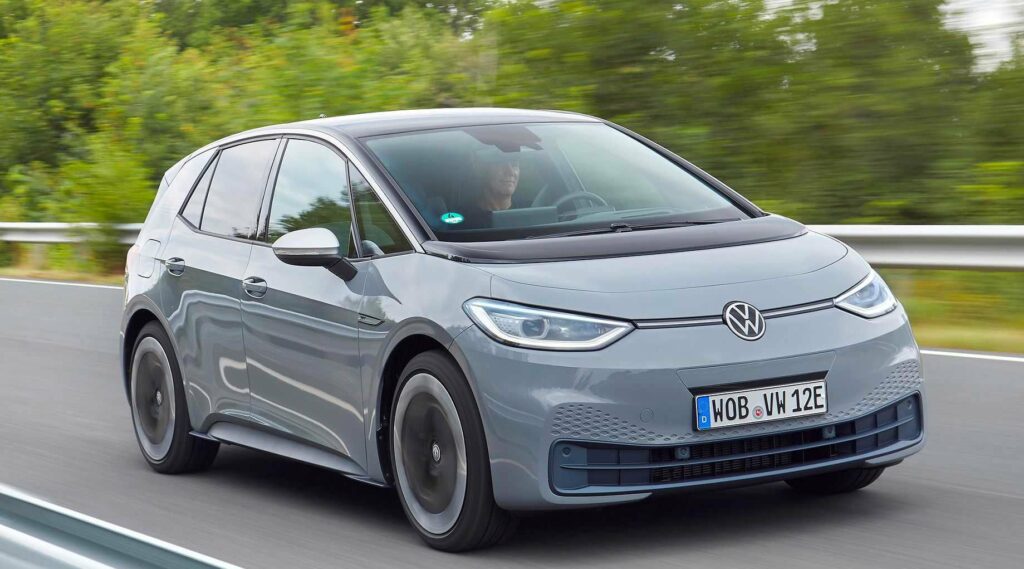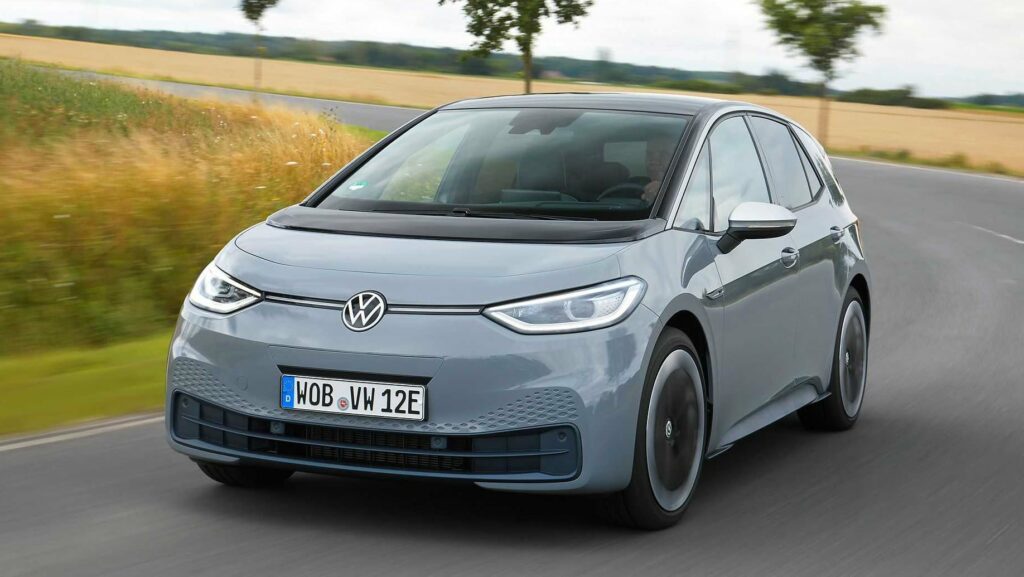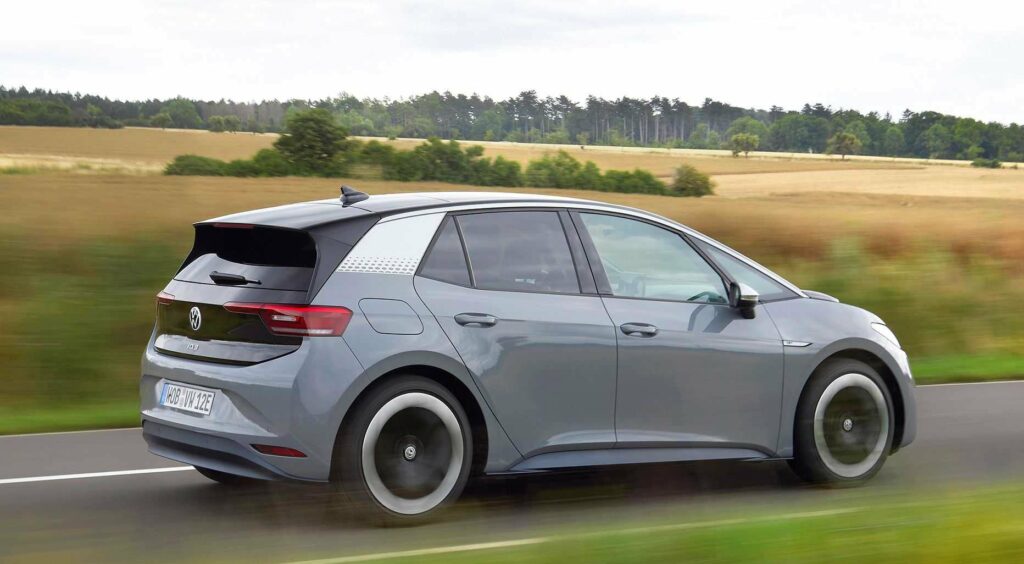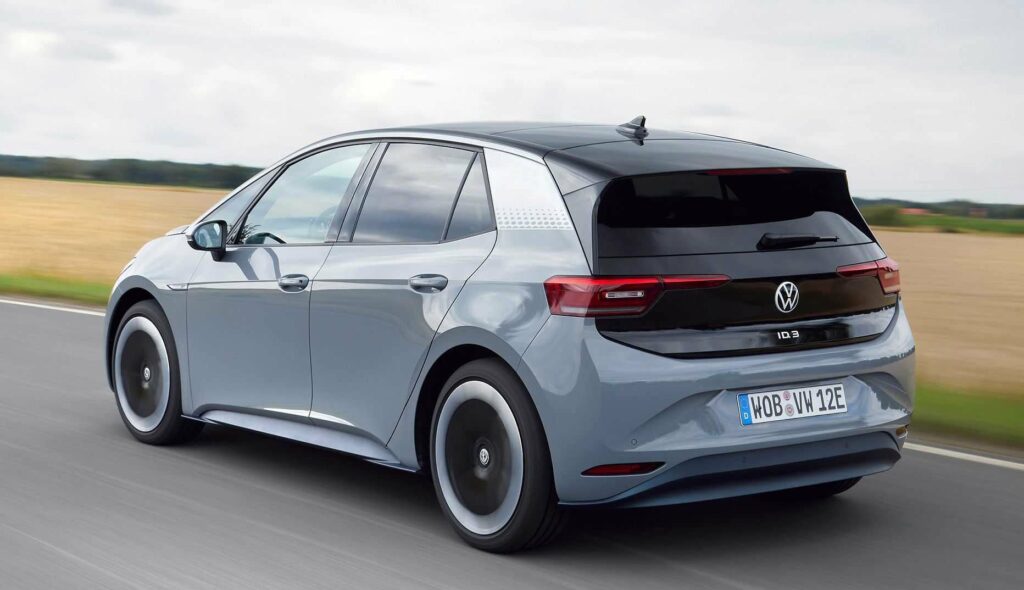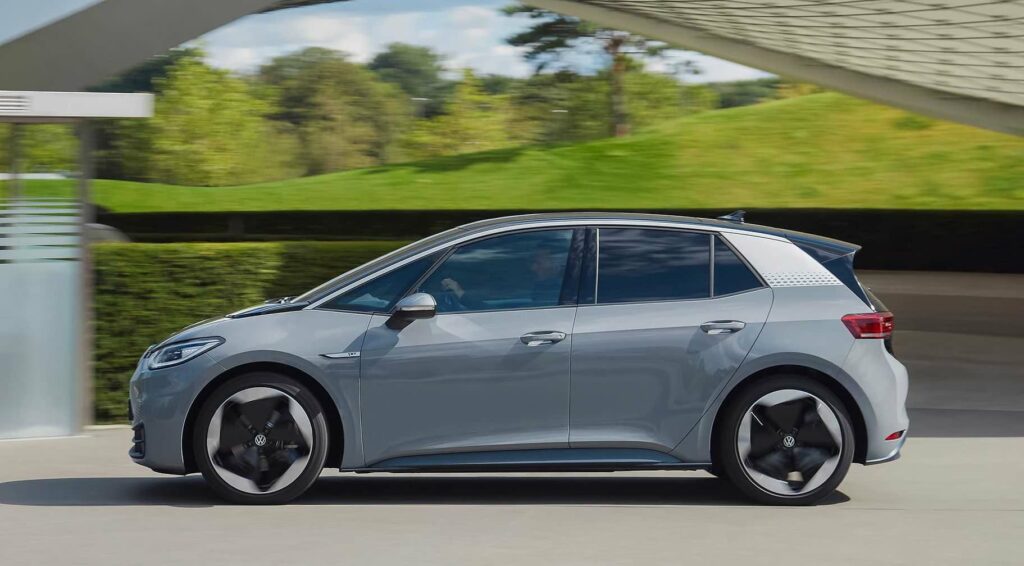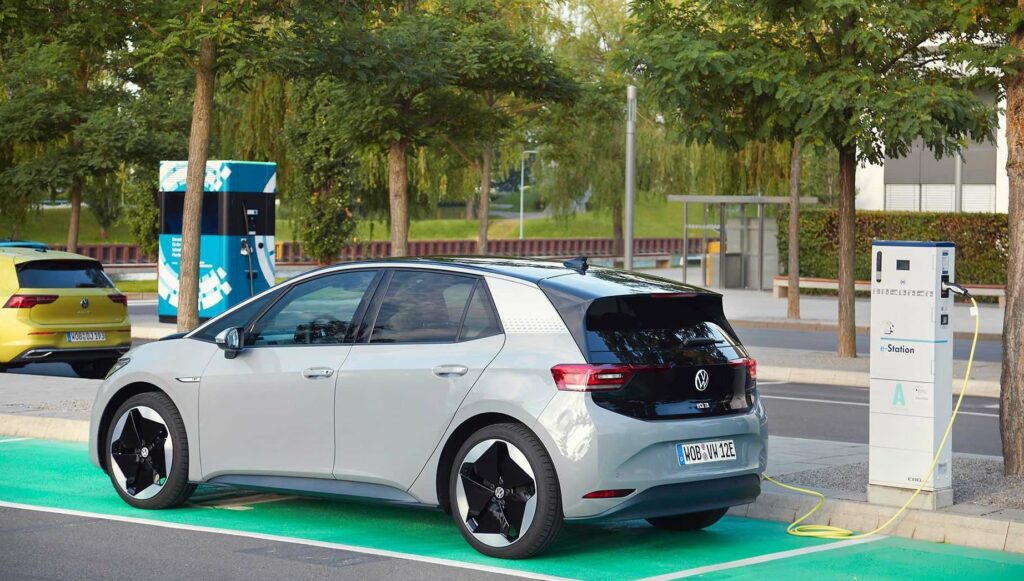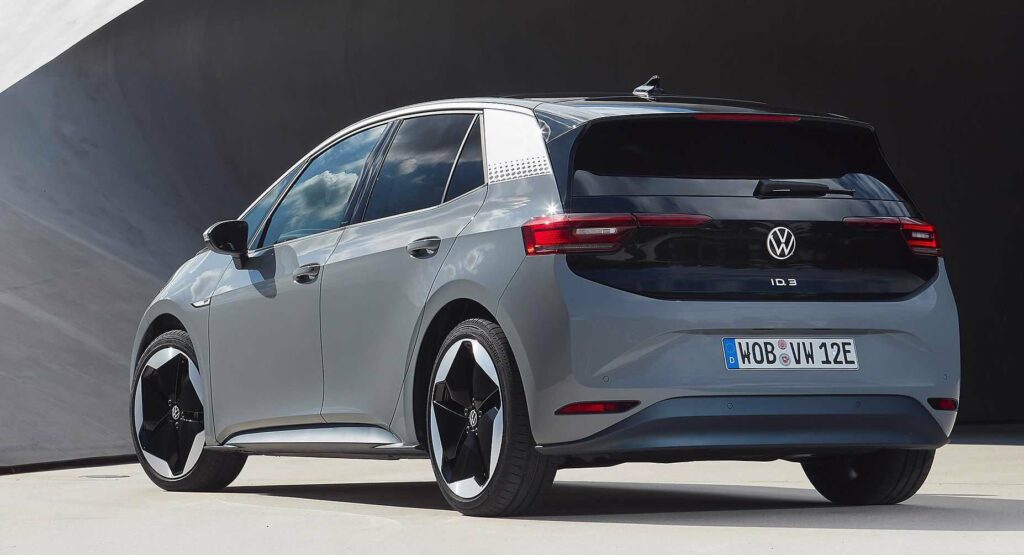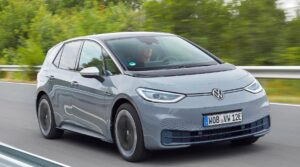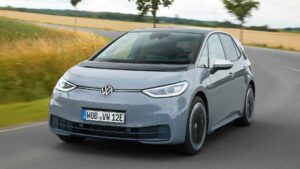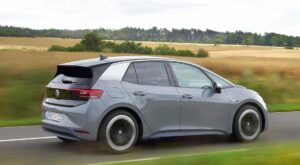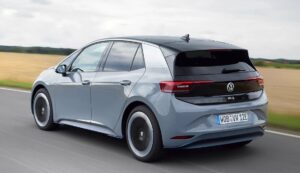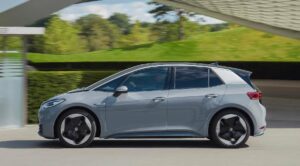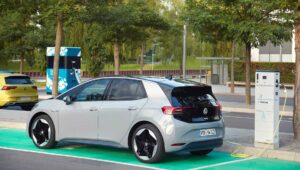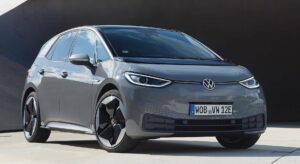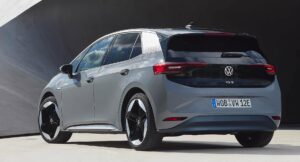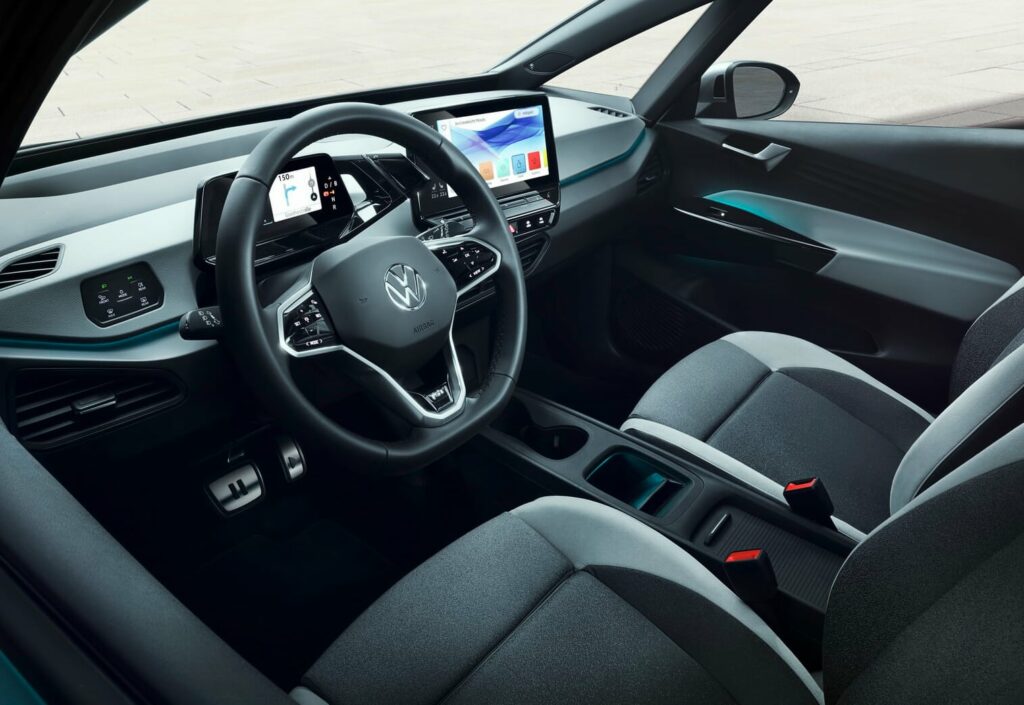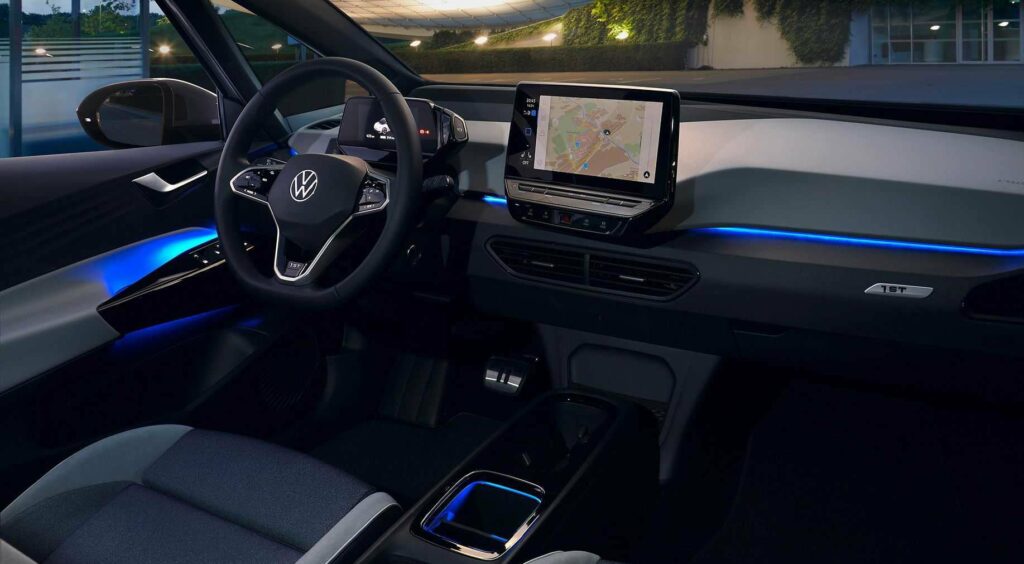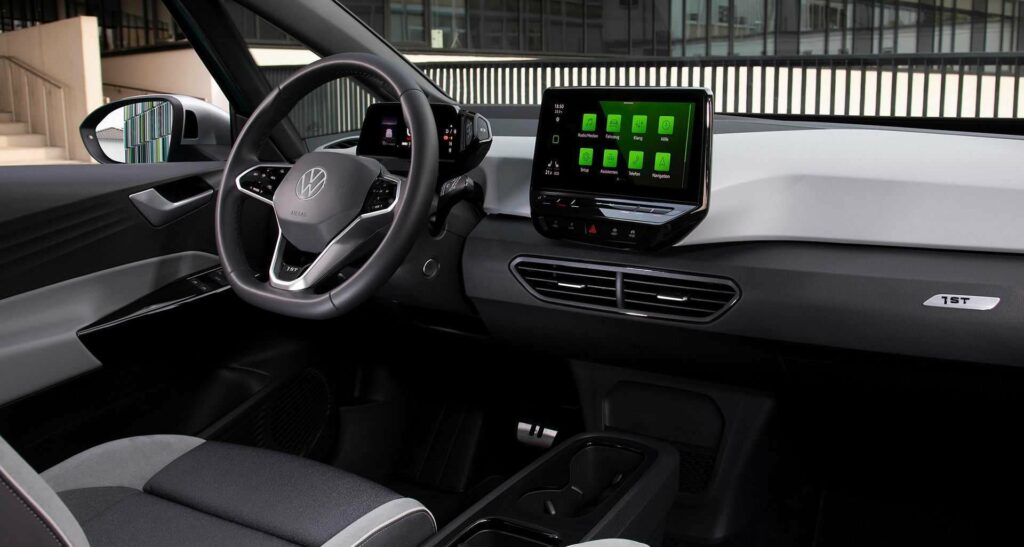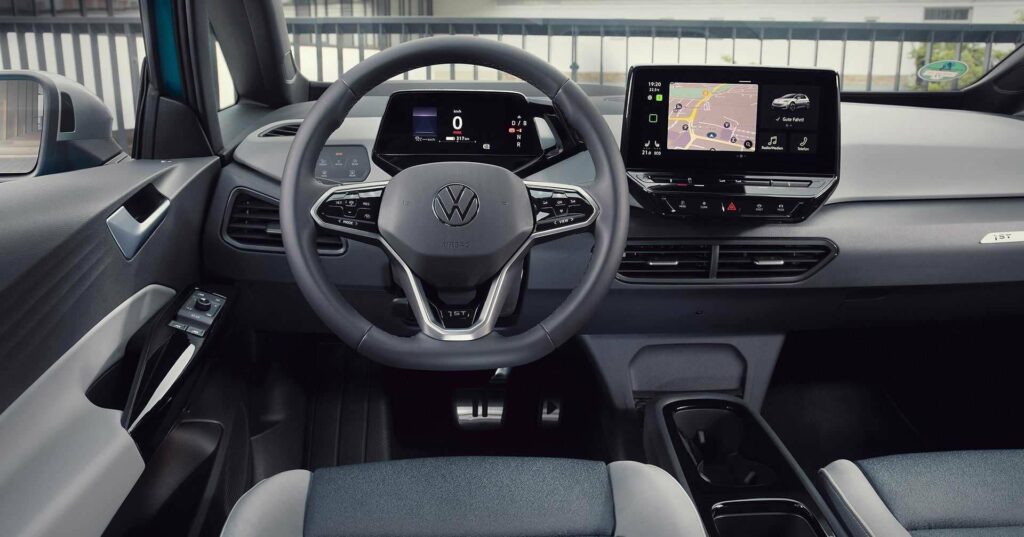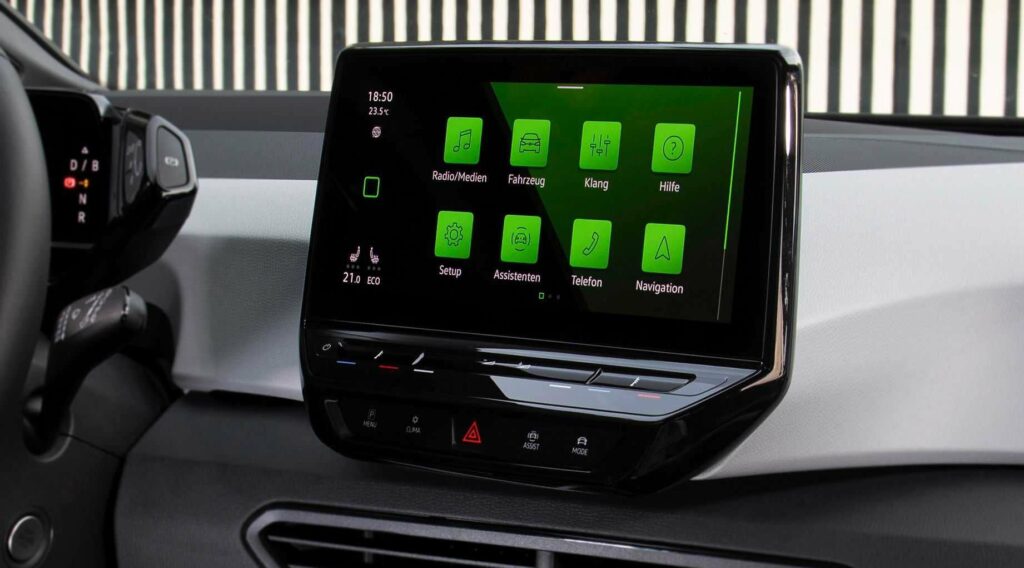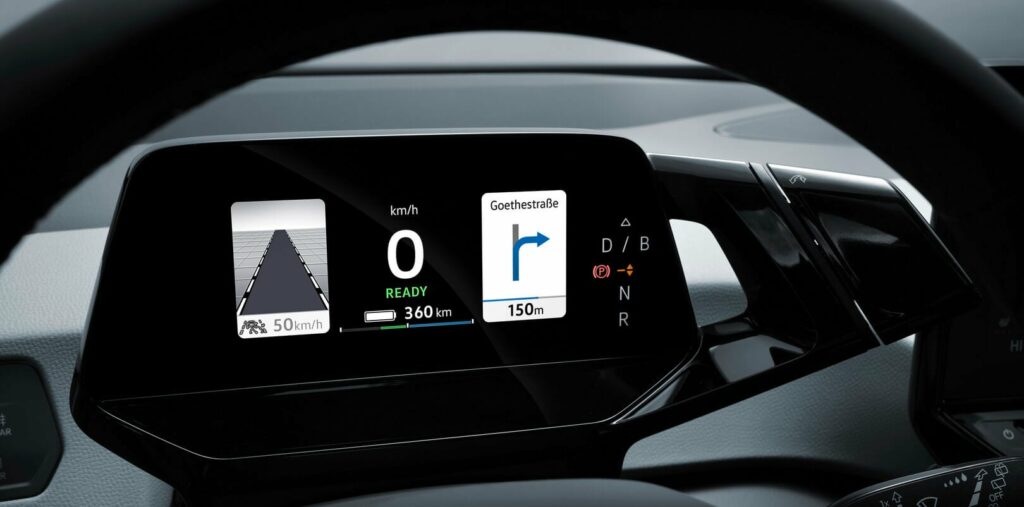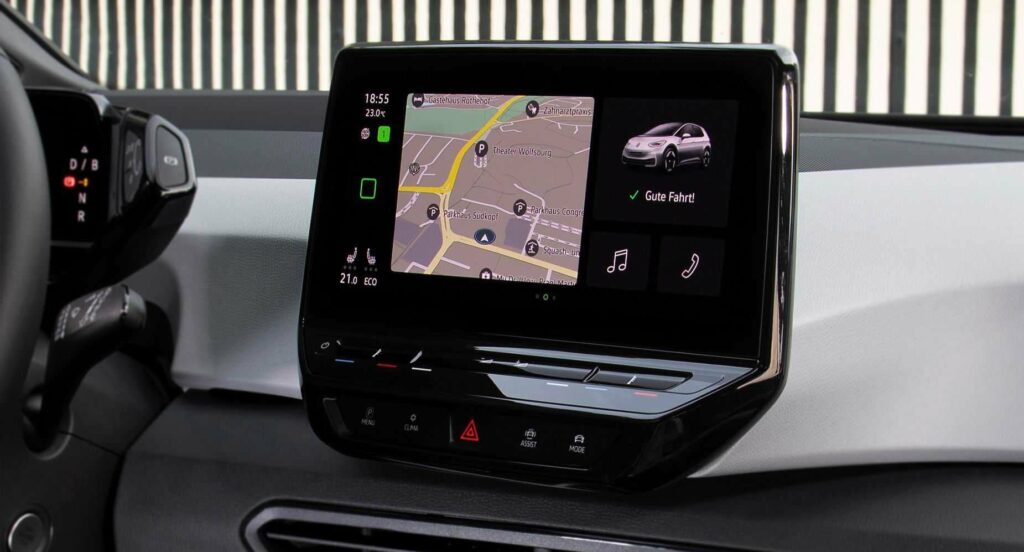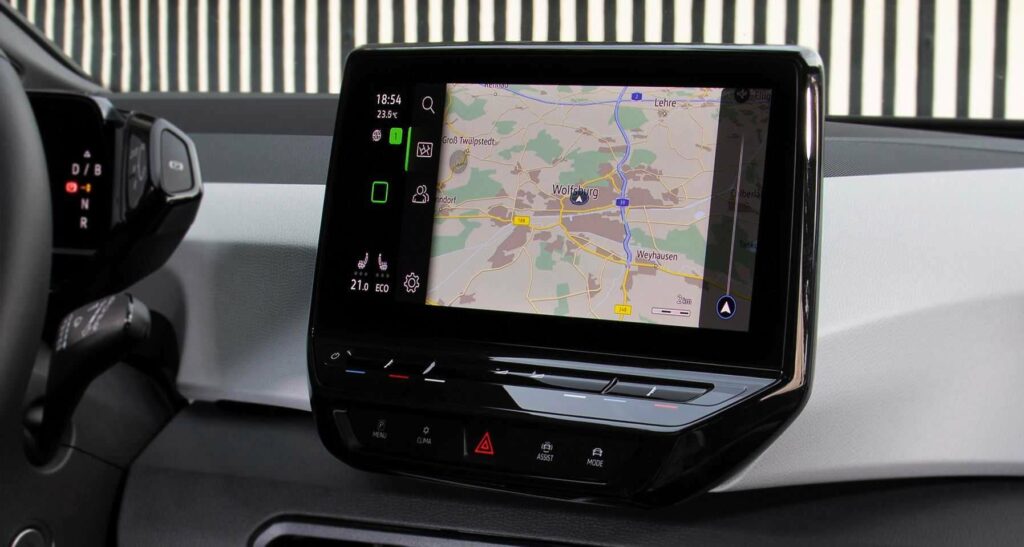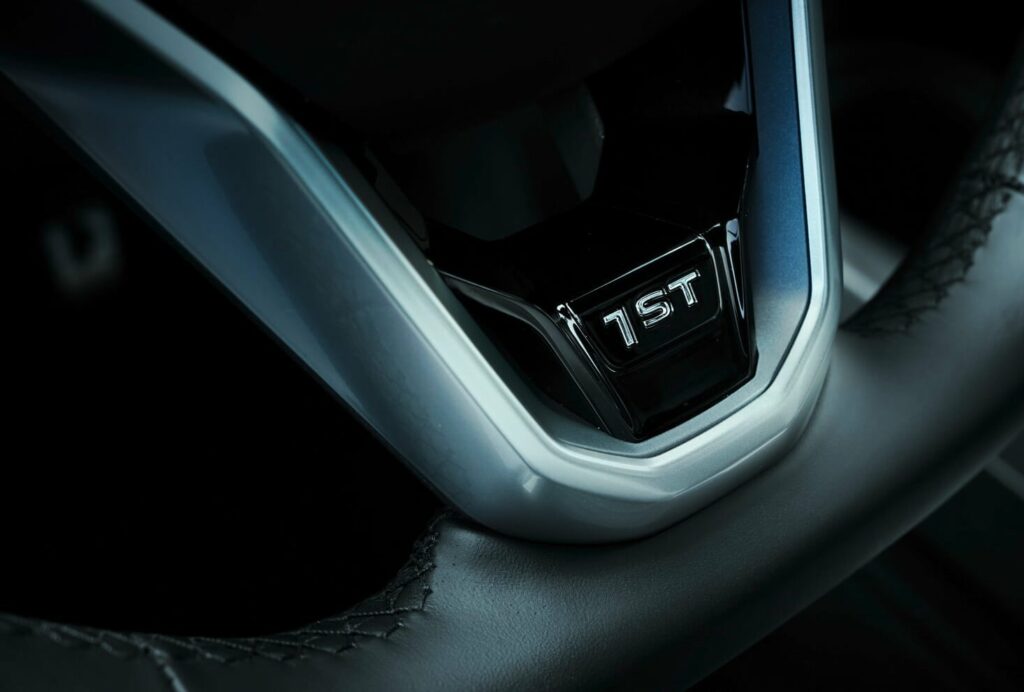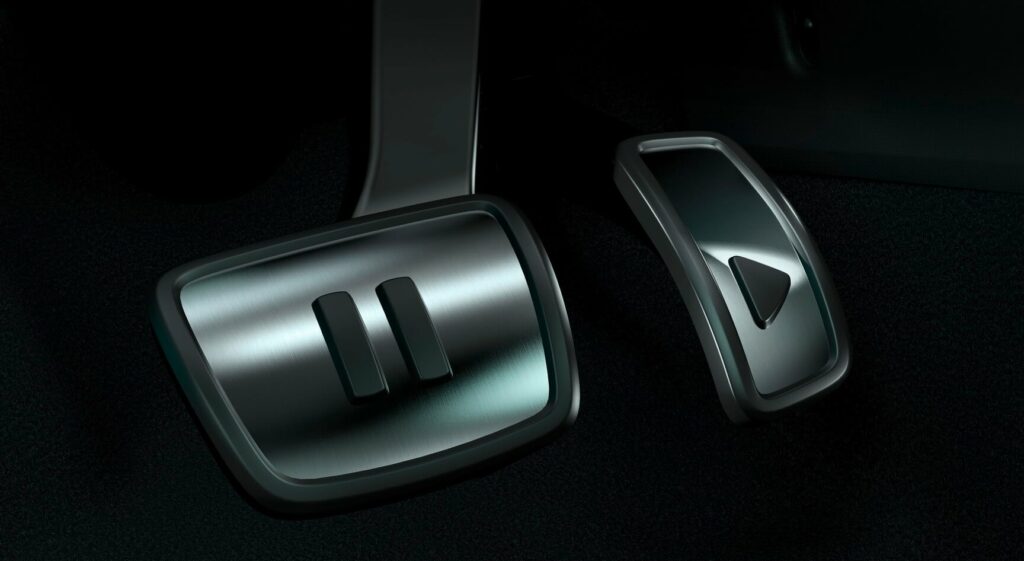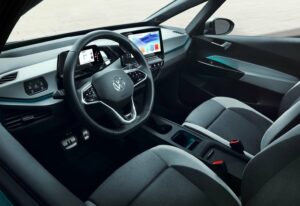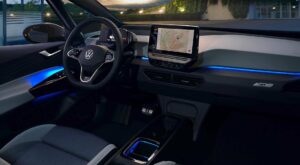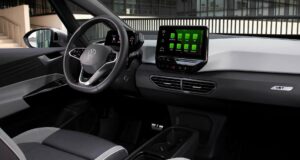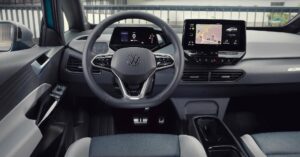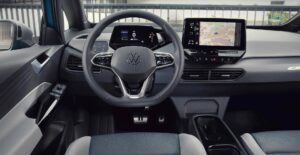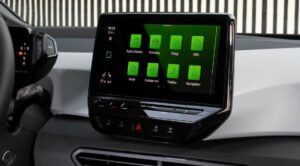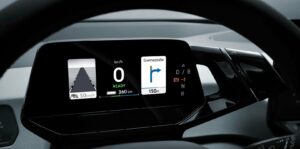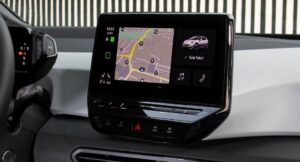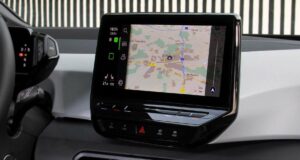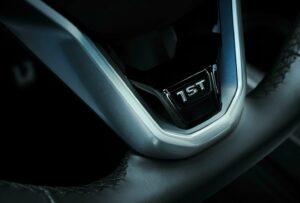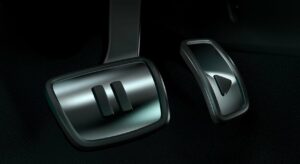Volkswagen ID.3 Pro
The Volkswagen ID.3 Pro is the entry-level model in the ID.3 line of electric vehicles from Volkswagen. The Pro version is one of six models available in the ID.3 range.
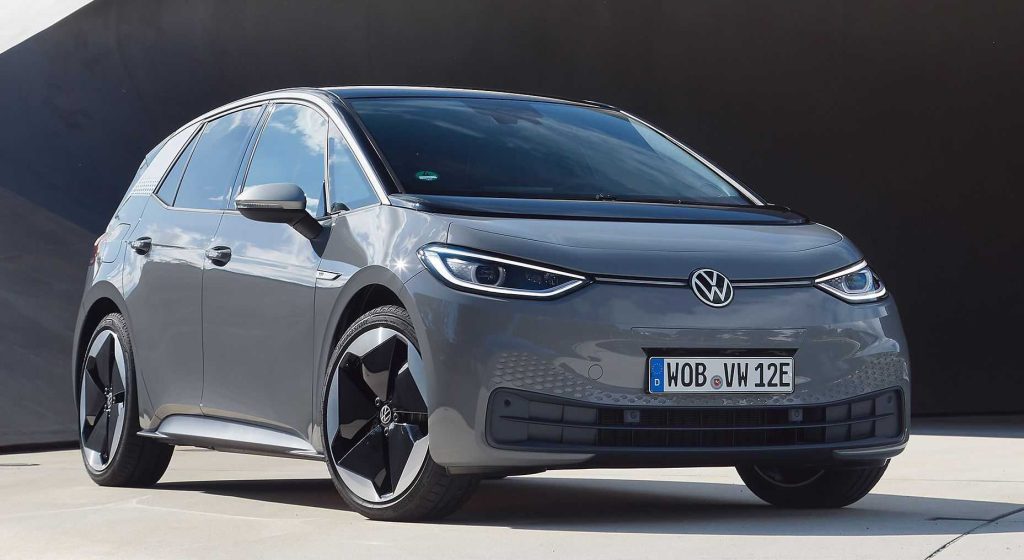
The ID.3 Pro has a smaller 62 kWh battery pack and an electric motor that produces 107 kW of power and 275 Nm of torque. The car accelerates from 0 to 100 km/h in 9.6 seconds and reaches a top speed of 160 km/h.
The Pro version has a range of up to 350 km (216 miles) on a single charge on the WLTP cycle. The car can be charged with a maximum power of 100 kW, which allows the battery to be 80% charged in about 30 minutes. The vehicle also supports AC charging, which can draw up to 7.2 kW of power.
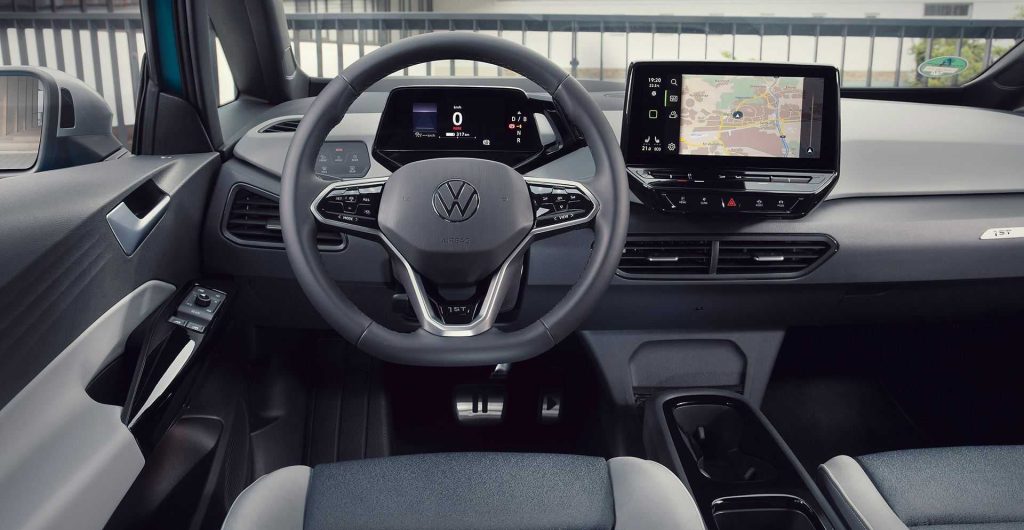
Inside, the ID.3 Pro has a spacious and modern interior with a digital dashboard and a large touchscreen infotainment system. The car is also equipped with a number of advanced safety features, including lane departure warning, adaptive cruise control, and automatic emergency braking.
Overall, the Volkswagen ID.3 Pro is a great entry-level option for those looking to make the switch to an electric car. It offers good performance, a decent range, and comfortable driving at an affordable price.
| Performance | |
| Acceleration 0 – 100 km/h | 9.6 sec |
| Top Speed | 160 km/h |
| Electric Range | 350 km |
| Total Power | 107 kW (145 PS) |
| Total Torque | 275 Nm |
| Drive | Rear |
| Battery and Charging | |
| Battery Capacity | 62.0 kWh |
| Battery Useable | 58.0 kWh |
| Europe | |
| Charge Port | Type 2 |
| Port Location | Right Side – Rear |
| Charge Power | 11 kW AC |
| Charge Time (0->350 km) | 6h15m |
| Charge Speed | 56 km/h |
| Fastcharge Port | CCS |
| FC Port Location | Right Side – Rear |
| Fastcharge Power (max) | 128 kW DC |
| Fastcharge Time (35->280 km) | 30 min |
| Fastcharge Speed | 490 km/h |
| Energy Consumption | |
| EVDB Real Range | |
| Range | 350 km |
| Vehicle Consumption | 166 Wh/km |
| CO2 Emissions | 0 g/km |
| Vehicle Fuel Equivalent | 1.9 l/100km |
| WLTP Ratings (TEL) | |
| Range | 427 km |
| Rated Consumption | 154 Wh/km |
| Vehicle Consumption | 136 Wh/km |
| CO2 Emissions | 0 g/km |
| Rated Fuel Equivalent | 1.7 l/100km |
| Vehicle Fuel Equivalent | 1.5 l/100km |
| WLTP Ratings (TEH) | |
| Range | 414 km |
| Rated Consumption | 157 Wh/km |
| Vehicle Consumption | 140 Wh/km |
| CO2 Emissions | 0 g/km |
| Rated Fuel Equivalent | 1.8 l/100km |
| Vehicle Fuel Equivalent | 1.6 l/100km |
| TEL = Test Energy Low | TEH = Test Energy High | |
|
Rated = official figures as published by manufacturer. Rated consumption and fuel equivalency figures include charging losses.
|
|
|
Vehicle = calculated battery energy consumption used by the vehicle for propulsion and on-board systems.
|
|
| Real Energy Consumption between 112 – 232 Wh/km | |
| City – Cold Weather | 171 Wh/km |
| Highway – Cold Weather | 232 Wh/km |
| Combined – Cold Weather | 197 Wh/km |
| City – Mild Weather | 112 Wh/km |
| Highway – Mild Weather | 178 Wh/km |
| Combined – Mild Weather | 143 Wh/km |
| Energy use for each trip will vary considerably depending on the driver and the conditions. Therefore, we have provided a range of estimates which can be useful in developing an understanding of the potential benefits of this technology. | |
| Safety (Euro NCAP) | |
| Adult Occupant | 87% |
| Child Occupant | 89% |
| Rating Year | 2020 |
| Vulnerable Road Users | 71% |
| Safety Assist | 88% |
| Dimensions and Weight | |
| Length | 4261 mm |
| Width | 1809 mm |
| Width with mirrors | 2070 mm |
| Height | 1568 mm |
| Wheelbase | 2771 mm |
| Weight Unladen (EU) | 1812 kg |
| Gross Vehicle Weight (GVWR) | 2270 kg |
| Max. Payload | 533 kg |
| Cargo Volume | 385 L |
| Cargo Volume Max | 1267 L |
| Cargo Volume Frunk | 0 L |
| Roof Load | 0 kg |
| Tow Hitch Possible | No Data |
| Towing Weight Unbraked | 0 kg |
| Towing Weight Braked | 0 kg |
| Vertical Load Max | No Data |
| Miscellaneous | |
| Seats | 5 people |
| Isofix | Yes, 3 seats |
| Turning Circle | 10.2 m |
| Platform | VW MEB |
| Car Body | Hatchback |
| Segment | C – Medium |
| Roof Rails | No |
| EV Dedicated Platform | Yes |
ome and Destination Charging (0 -> 100%)
A public charging station is required to use the highest possible charging rate. The EVSE/charging station’s charging capacity affects how long it takes to fully charge the battery. The table below shows all possible options for fully charging the Volkswagen ID.3 Pro.
In Europe, plugging an electric car into an outlet is often as easy as plugging it into a household outlet, but there are differences from country to country. The table below shows the different ways to charge the Volkswagen ID.3 Pro, but in some countries some chargers may not be available.
Type 2 ( IEC 62196)
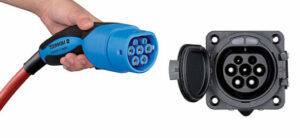
| Charging Point | Max. Power | Power | Time | Rate |
| Wall Plug (2.3 kW) | 230V / 1x10A | 2.3 kW | 29h45m | 12 km/h |
| 1-phase 16A (3.7 kW) | 230V / 1x16A | 3.7 kW | 18h30m | 19 km/h |
| 1-phase 32A (7.4 kW) | 230V / 1x32A | 7.4 kW | 9h15m | 38 km/h |
| 3-phase 16A (11 kW) | 400V / 3x16A | 11 kW | 6h15m | 56 km/h |
| 3-phase 32A (22 kW) | 400V / 3x16A | 11 kW | 6h15m | 56 km/h |
Fast Charging (10 -> 80%)
If you want to enjoy driving an electric car, one of the most important features to consider is the number of miles per hour the car can travel while charged. This is called the “range” of the car. All electric cars have a certain range, even if they are 100% charged. This is because they do not have an internal combustion engine to lean on if you need to drive a long distance.
Max. Power: The maximum power provided by the charging point
Avg. Power: The average power provided by the charging point during a session of 10% to 80%.
Time: the time it takes to charge from 10% to 80%
Speed: the average charging rate during the session of 10% to 80%
Combined Charging System (CCS Combo 2)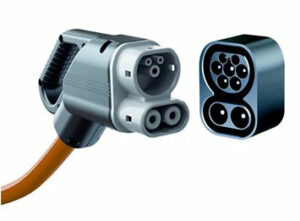
| Charging Point | Max. Power | Avg. Power | Time | Rate |
| CCS (50 kW DC) | 50 kW | 40 kW | 64 min | 230 km/h |
| CCS (100 kW DC) | 100 kW | 70 kW | 37 min | 390 km/h |
| CCS (150 kW DC) | 128 kW | 85 kW | 30 min | 490 km/h |
| Brand | Volkswagen |
| Model | ID.3 Pro |
| Body Style | Hatchback |
| Car Engine | electric |
| Motor power | 107 |
| Maximum Torque, Nm | 275 |
| Battery Energy, kWh | 62.0 |
| Power reserve (NEDC/EPA/WLTP), km | - / - / 350 |
| Level Charging (230/400/DC), hours | - / 6.15 / 0.3 |
| Electrical Acceleration, 0-100 km/h (0-62.1 mph) in sec | 9.6 |
| Top Speed, km/h | 160 |
